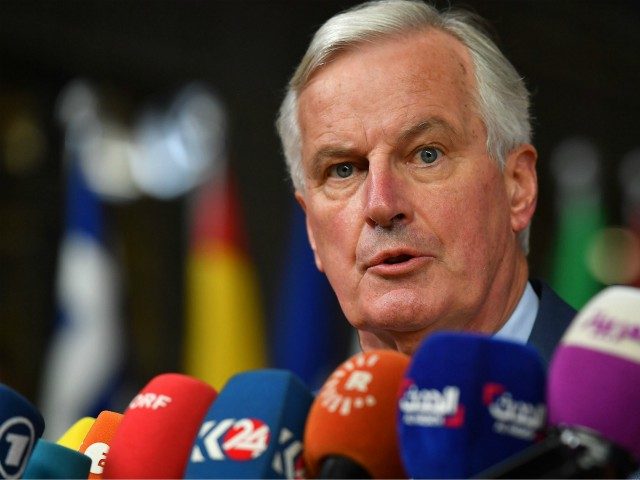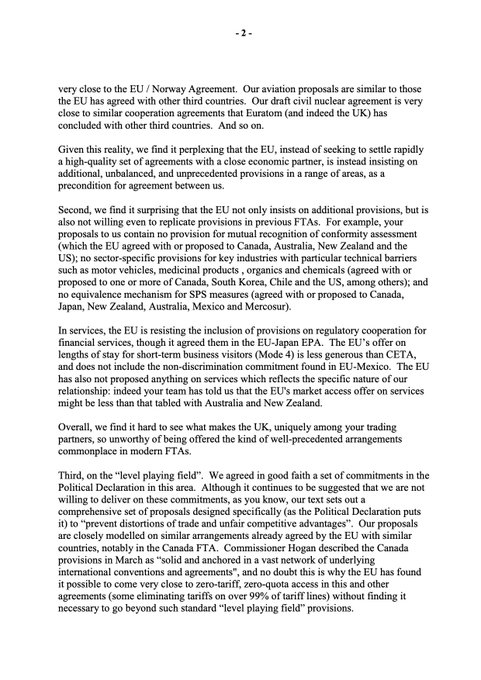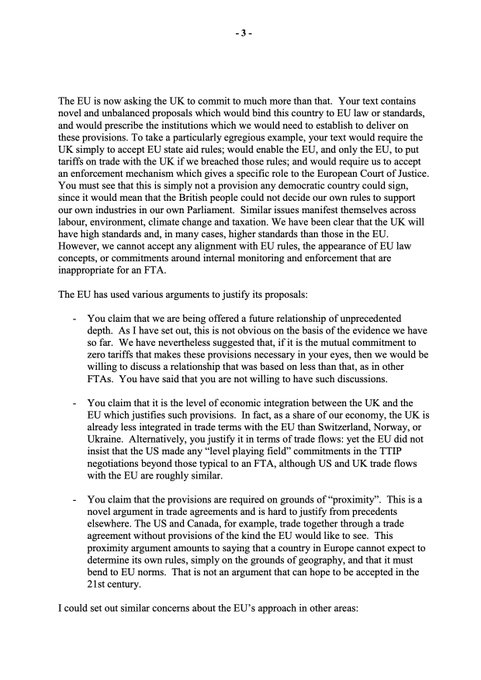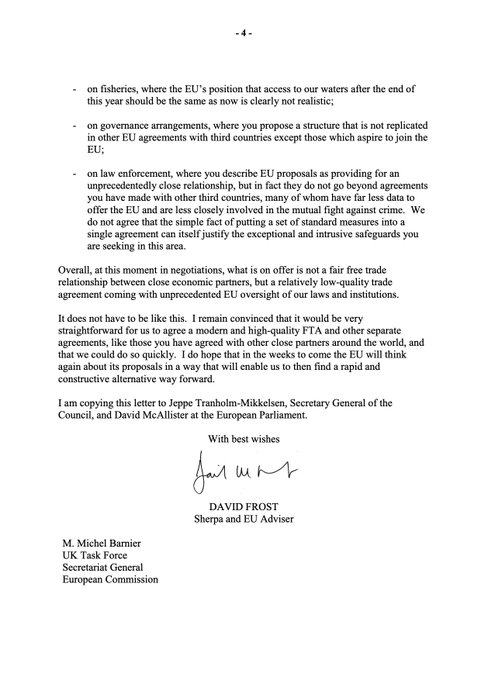The EU’s chief Brexit negotiator, Michel Barnier, has accused the UK of backtracking from pledges it made in the Political Declaration, signalling that Brussels would not budge on its demands on fishing and regulatory alignment.
VICTORIA FRIEDMAN

The fourth round of post-Brexit trade negotiations concluded on Friday, with Mr Barnier telling media during a press conference, effectively, that the British government has not moved on its pledges to the British people to regain control of the United Kingdom’s fishing waters, regulations, and laws.
The EU demands continued access to Britain’s territorial fishing waters, with the Common Fisheries Policy currently allowing EU trawlers to land approximately 60 per cent of the fish caught in the waters around the United Kingdom while British fishermen go bust.
Brussels also wants Britain to deliberately make itself less of a competitive threat to the EU by abiding by “level playing field” rules on state aid for British businesses and other issues.
The EU also wants its own European Court of Justice to oversee the governance of any future trade deal.
Tremendous letter from @DavidGHFrost to @MichelBarnier on the absurdity of the EU position. "Your text contains novel & unbalanced proposals which would bind this country to EU law or standards...You must see that this is simply not a provision any democratic country could sign"
On all these matters, Mr Barnier said: “This week, there have been no significant areas of progress.”
“On fisheries, the UK has not shown any true will to explore other approaches beyond zonal attachment for the sharing of quotas. They continue to condition access to waters to an annual negotiation, which is not possible for us, not even technically possible. The EU wants to construct a stable, economic partnership. That’s always been our desire,” the former French minister said, signalling that the EU wants a permanent deal, set in stone, on accessing Britain’s territorial waters.
Speaking from the European Commission — the EU’s powerful unelected executive — in Brussels, Belgium, he continued: “I don’t think we can go on like this forever.
“On top of that, the UK has refused to extend the transition period, which would allow us more time for negotiations. We have always been open from our side to extending this period by one or two years… Our door is still open to that end.”
The United Kingdom officially left the EU on January 31st, 2020, but has entered an 11-month “transition period” in which it continues to abide by the EU’s rules on Free Movement and membership of the Single Market and Customs Union.
Effectively leaving the UK in the EU in all but name, but with no representation in the nominally-democratic European Parliament or other EU institutions, the transition period was supposed to provide time for the two parties to agree on a future trade deal.
If an agreement is not made by December 31st, 2020, the United Kingdom will fully leave the EU’s institutions and trade with the bloc on World Trade Organization (WTO) terms. Extension of the transition period has been ruled out, despite pressure from the EU and anti-Brexit MPs to extend it by two years, with its end date currenty confirmed in British law.
While the United Kingdom has asked for a deal similar to the one the EU struck with Canada — where the vast majority of tariffs are lifted — the EU has insisted that the British remain closely aligned to the bloc. Negotiators came to blows — albeit at a distance, due to coronavirus — when Mr Barnier’s British equivalent, David Frost, said last month that the UK would not accept the EU’s “low-quality” deal that no “democratic country could sign”.
In response, the Frenchman said that he did not like Frost’s “tone” and rejected calls for a deal based on a partnership of equals.
“We must stick to our commitments if we want to move forward,” Mr Barnier said on Friday, complaining that the UK was trying to “distance” itself from terms outlined in the Political Declaration, which sets out a framework for negotiating a future trade deal.
Both Mr Barnier and Germany’s ambassador to the EU, Michael Clauss, have said in recent days that the British must be “realistic” and accept a surrender of sovereignty in exchange for a trade deal.
The British government has said that there will be no progress on a deal until the EU drops its unreasonable demands, while Mr Barnier still thinks a deal can be done on the EU’s terms in the next few months.
The Bank of England, however, is more “realistic” in recognising the possible outcomes, telling British banks to prepare for a no-deal style exit on World Trade Organization (WTO) terms by New Year.
Tory Brexiteer: Europe Wants Delay So They Can Take Our Money For Another Two Years breitbart.com/europe/2020/06…

https://www.breitbart.com/europe/2020/06/05/no-progress-eu-wont-drop-demands-uk-wont-surrender-fishing/#






